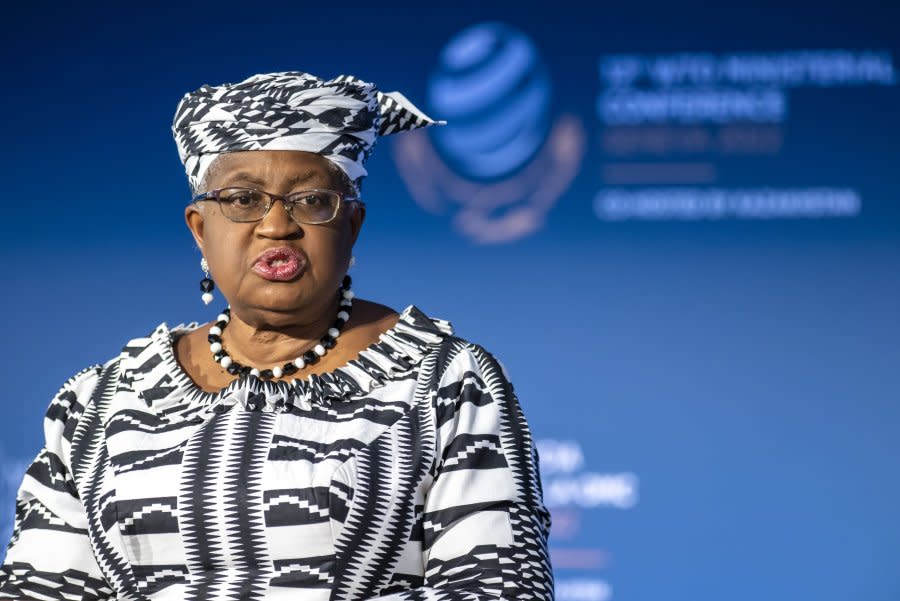WTO closes ministers' conference with tense negotiations, few agreements

March 2 (UPI) -- Members of the World Trade Organization wrapped up the 13th Ministerial Conference in Abu Dhabi Saturday with a consensus to extend a moratorium on e-commerce tariffs for two years and little else.
MC13 was originally scheduled to run from Monday to Thursday. Despite tense negotiations that extended the conference nearly two days, member nations were unable to reach an agreement on curbing subsidies that result in overfishing and public stockholding for food insecurity.
By the end of the conference, the Fisheries Subsidies Agreement had acceptance from 71 of the 164 member countries.
WTO Director-General Ngozi Okonjo-Iweala said members "narrowed some outstanding gaps" in the subsidies negotiations, "but several more remain."
"While I had hoped that we could finish these negotiations in Abu Dhabi, you have prepared the ground for its conclusion at the next Ministerial Conference, if not earlier," Okonjo-Iweala said. "The livelihoods of 260 million people who depend directly or indirectly on marine fisheries are at stake."
Members also could not reach consensus on public stockholding for food security purposes, which was a top priority for India.
The conference ended with approval to extend a moratorium on tariffs for electronic trade until the next conference in 2026.
India, Indonesia and South Africa have signaled their opposition to the moratorium, but this week voted in favor of it. The countries have expressed concern about the dominance of Silicon Valley on the global tech sector.
Delegates accused India, in particular, of attempting to block a deal on the e-commerce moratorium unless the conference achieved consensus on subsidies for farmers.
Executive Vice President of the European Commission Valdis Dombrovskis said he was "very relieved" by the extension, noting the free trade of digital services is crucial for small businesses around the world.
"Almost one quarter of global trade is digital and will only continue to grow in importance," Dombrovskis said. "The EU invested considerable time and political effort to build a coalition in favor of extending this deal to trade digitally without customs duties."
British Business Secretary Kemi Badenoch said the moratorium guarantees "small businesses are not taxed for having an international conference call and consumers do not pay extra to stream songs or films from other countries.
"The U.K. still firmly believes the WTO should extend the moratorium permanently and will continue to make for the case for that," she said.
The conference also reached an agreement on services domestic regulation, which is expected to lower trade costs by over $125 billion worldwide. The initiative was supported by 72 WTO members and is intended to streamline the regulatory process.
Meanwhile, ministers agreed to the first-ever WTO commitment to ensure non-discrimination based on gender in applying for permits to supply services.
The world body also gained two new member countries. Early in the conference, ministers approved the addition of Comoros and Timor-Leste to the organization.
The 14th Ministerial Conference will be held in Cameroon in 2026.

